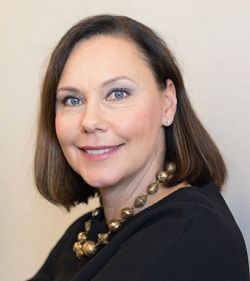A beacon for the next 50 years

The year 1968 was very important in many respects. There were youth revolts throughout Europe contesting the old order. In Vietnam, the war had intensified. The Prague Spring in Czechoslovakia ended with a Soviet intervention.
In addition to all these events, Finland negotiated its accession to the OECD. We became the organisation’s 22nd member in January 1969, and here we are today, celebrating Finland’s 50 years at the OECD.
Those 50 years have been very transformative. Finland in 1969 was in the process of evolving from an agrarian society into an industrialised one. One third of the work force was still working in agriculture in the 1960s, but that share was quickly diminishing. There was a strong internal migration from the countryside to the cities, and towards the end of the decade, many hundreds of thousands went to Sweden for work. The next decade brought more urbanisation, more industrialisation, the free trade agreement with the European Economic Community (EEC), and among other things, reform of the school system. The economy continued to open up in the 1980s, which led to an economic boom, but that was followed by a deep depression in the early 1990s.
Thereafter came the crucial moment of joining the European Union in 1995, becoming more and more connected, and interconnected, with the rest of the world. We lived the golden years of Nokia’s success of the early 2000s and the structural crisis in our economy of the past decade. Now, conscious of the global challenges that we and everyone else are facing, we’re looking for new sources of growth. And just as in 1969, we are looking for ways of achieving social improvement.
The OECD has contributed a lot since we joined. For sure, the reasons for joining the OECD were also political, and Finland was driven by its desire to join its natural reference group of Western, market-based democracies.
The OECD has brought us many things. It has been a research institute for high-quality studies into economic and social policies and their impact. From development of statistics and measurements to policy advice, we have been making use of OECD best practices in many fields.
The OECD has been a forum for exchanging ideas among countries, which are not just like-minded, but mostly on very similar levels of development. We have been able to form a common understanding regarding questions ranging from competition to taxation, not forgetting corruption, investment policies, export credits and responsible business conduct.
The OECD has been a place for invaluable learning among peers. Its reviews have given us insight into how other countries have tackled tricky social problems. It has given us a platform to show others what we have done well. It has offered us benchmarks to strive for, and to surpass.
Take development policy, for example. The OECD’s Development Assistance Committee (DAC), which monitors and tracks bilateral official development assistance, is the standardsetting community for development issues. Currently OECD is supporting its member states to achieve the 2030 Agenda for Sustainable Development, both in development co-operation and beyond.
I like to think of the OECD as a lighthouse to show us the way, to improve, to become better as a society, as an economy, and as members of the international community. The OECD motto, “better policies for better lives”, resonates well in Finland.
We are about to undergo a massive transformation in the coming decades as well, including changes in world economy, the impacts of climate change and mitigation, sustainable development, urbanisation, migration, digitalisation, artificial intelligence, robotisation, and more. There are many fundamental challenges, and many unanswered questions.
And they are not issues that Finland can address on its own. We need to work to find solutions together. In all of this, we find the OECD work extremely important. The OECD has been instrumental in identifying emerging issues for the decades to come and proposing solutions to challenges ahead. Its impartial, independent research is vital in assessing the impact of our policies. As we celebrate Finland’s first 50 years at the OECD today, we are looking forward to the next 50 years, with the OECD as one of our beacons.
©OECD Observer May 2019
This article is part of a series celebrating Finland's 50th anniversary as a member country of the OECD: www.oecdobserver.org/finland50oecd
